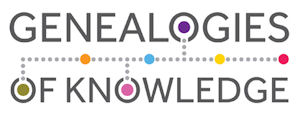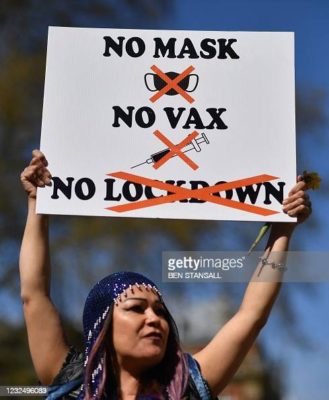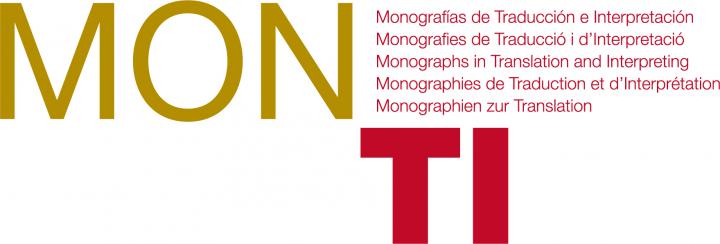
Genealogies of Knowledge Research Network
Coordinated by
Mona Baker, Jan Buts and Henry Jones
Remit Membership Outputs and Activities
Genealogies of Knowledge has organised two major international conferences and a host of specialised workshops and seminars. Our research is disseminated through a variety of channels, including publications and hands-on activities. The Network aims to continue its intensive engagement with the broader academic community by sharing methods, findings and resources.
Publications
| Special Issue of Humanities and Social Sciences Communications: Genealogies of Knowledge OPEN ACCESS |
|---|
| Baker, M. (2020) ‘Rehumanizing the migrant: the translated past as a resource for refashioning the contemporary discourse of the (radical) left’, in M. Baker & H. Jones (eds) ‘Genealogies of Knowledge’, special issue of Humanities and Social Sciences Communications 6(12). [OPEN ACCESS] DOI: https://doi.org/10.1057/s41599-019-0386-7
Buts, J. (2020) ‘Community and authority in ROAR Magazine‘, in M. Baker & H. Jones (eds) ‘Genealogies of Knowledge’, special issue of Humanities and Social Sciences Communications 6(16). [OPEN ACCESS] DOI: https://doi.org/10.1057/s41599-020-0392-9 Jones, H. (2019) ‘Shifting characterizations of the ‘common people’ in modern English retranslations of Thucydides’ History of the Peloponnesian War’, in M. Baker & H. Jones (eds) ‘Genealogies of Knowledge’, special issue of Humanities and Social Sciences Communications 5(135). [OPEN ACCESS] DOI: https://doi.org/10.1057/s41599-019-0348-0 Karimullah, K.I. (2020) ‘Editions, translations, transformations: refashioning the Arabic Aristotle in Egypt and metropolitan Europe, 1940–1980’, in M. Baker & H. Jones (eds) ‘Genealogies of Knowledge’, special issue of Humanities and Social Sciences Communications 6(3). [OPEN ACCESS] DOI: https://doi.org/10.1057/s41599-019-0376-9 Karimullah, K.I. (2020) ‘Hippocrates transformed: Crafting a Hippocratic discourse of medical semiotics in English, 1850-1930’, in M. Baker & H. Jones (eds) ‘Genealogies of Knowledge’, special issue of Humanities and Social Sciences Communications 7(27). [OPEN ACCESS] DOI: https://doi.org/10.1057/s41599-020-0511-7. Luz, S. and S. Sheehan (2020) ‘Methods and visualisation tools for the analysis of medical, political and scientific concepts in Genealogies of Knowledge’, in M. Baker & H. Jones (eds) ‘Genealogies of Knowledge’, special issue of Humanities and Social Sciences Communications 6(49). [OPEN ACCESS] DOI: https://doi.org/10.1057/s41599-020-0423-6 Pérez-González, P. (2020) ‘‘Is climate science taking over the science?’: A corpus-based study of competing stances on bias, dogma and expertise in the blogosphere’, in M. Baker & H. Jones (eds) ‘Genealogies of Knowledge’, special issue of Humanities and Social Sciences Communications 7(92). [OPEN ACCESS] DOI: https://doi.org/10.1057/s41599-020-00582-z |
| Translating Cultures Glossary and Exhibition |
|---|
| The AHRC Translating Cultures Theme is preparing a glossary of keywords and an online exhibition, both of which focus on concepts and objects of translation. Our entries can be found here:
Baker, M. – Activism Buts, J. – Copy and Copyright Jones, H. – Visualising Textual Patterns Karimullah, K.I. – Critical Edition |
| Other publications |
|---|
| Buts, J. (2024) ‘Community between horde and herd: A corpus study.’ In N. Bond (ed) The Concept of Community from a Global Perspective (pp. 149-168). Brill. DOI: https://doi.org/DOI:10.1163/9789004697324_010
Buts, J. (2022) ‘Intelligent designs: A corpus-assisted study of creationist discourse.’ In M. Baker (ed) Unsettling Translation: Studies in honour of Theo Hermans (pp. 217-231). Routledge. [OPEN ACCESS] DOI: https://doi.org/DOI:10.4324/9781003134633-19 Buts, J., and H. Jones (2021) ‘From text to data: Mediality in corpus-based translation studies.’ In M. Calzada & S. Laviosa (eds) ‘CTS spring-cleaning: A critical reflection’, MonTI 13: 301-329. [OPEN ACCESS] PDF file. Buts, J., M. Baker, S. Luz, and E. Engebretsen (2021) ‘Epistemologies of evidence-based medicine: A plea for corpus-based conceptual research in the medical humanities.’ Medicine, Health Care and Philosophy, [OPEN ACCESS] DOI: https://doi.org/10.1007/s11019-021-10027-2 Jones, H. (2020) ‘Jowett’s Thucydides: A corpus-based analysis of translation as political intervention’, Translation Studies. [OPEN ACCESS] DOI: https://doi.org/10.1080/14781700.2020.1732230 Karimullah. K.I. (2020) ‘Sketching women: A corpus-based approach to representations of women’s agency in political internet corpora in Arabic and English’, Corpora 15(1): 21-53. [OPEN ACCESS] DOI: https://doi.org/10.3366/cor.2020.0184 Buts, J. (2020) ‘Phobia: A corpus study of political diagnostics’, Humanities and Social Sciences Communications. [OPEN ACCESS] DOI: https://doi.org/10.1057/s41599-020-00593-w Jones, H. (2019) ‘Retranslating Thucydides as a Scientific Historian: A corpus-based analysis’, Target. [OPEN ACCESS] DOI: https://doi.org/10.1075/target.19082.jon Jones, H. (2019) ‘Searching for Statesmanship: A corpus-based analysis of a translated political discourse’, Polis: The Journal for Ancient Greek and Roman Political Thought 36(2): 216-241. [OPEN ACCESS] DOI: https://doi.org/10.1163/20512996-12340208 Sheehan, S., M. Masoodian, and S. Luz (2018) ‘COMFRE: A visualization for comparing word frequencies in lingusitic tasks’, Proceedings of the 2018 International Conference on Advanced Visual Interfaces 42: 1-5. DOI: https://doi.org/10.1145/3206505.3206547 |
| Interviews |
|---|
| ‘Using Corpora to Trace the Cross-Cultural Mediation of Concepts through Time: An interview with the coordinators of the Genealogies of Knowledge Research Network‘ (Interview conducted by Zhao Wenjing, Zhengzhou Shengda University and Henan Normal University, and Yang Guosheng, Henan Polytechnic.) |
Workshops
| ‘Using Corpora to Investigate Questions of Power and Ideology in Translation: Insights from the Genealogies of Knowledge Project’ |
|---|
| Pre-conference workshop, International Postgraduate Conference in Translation and Interpreting (IPCITI), 25th October 2018.
Workshop convenors: Jan Buts, Henry Jones and Luis Pérez-González Abstract: Questions of power and ideology are central to translation and interpreting studies. The study of literary censorship, postcolonial identity construction, or institutional norms constraining translational latitude – to give but a few examples – have long been recurring themes that scholars have explored almost exclusively from a qualitative perspective. Over the last two decades, however, corpus-based translation studies has made great strides in revealing the scope and impact of power differentials on translated texts – including, but not limited to, media representations of sexual and ethnic minorities, discursive practices fuelling socio-political conflict, conversational dynamics between institutional interactants and lay people, and even interpersonal disputes in filmic dialogue. As the range of affordances they offer continues to grow, computer-held corpora represent a powerful heuristic tool to interrogate large collections of translated data and provide analysts with sound quantitative insights into translational behaviour. After an introductory overview of recent developments in corpus-based translation studies, participants will be provided with the opportunity to gain a practical understanding of the possibilities and challenges opened up by a corpus-based approach to the study of translation, power and ideology. Specifically, we will explore the variety of ways in which concordancing software can be used to identify patterns across large bodies of text and discuss the problems of de-contextualisation inherent to this mode of research. This session will be interactive, using buzz groups and a series of guided practical tasks. The corpus data participants will work with during this workshop are derived from the Genealogies of Knowledge corpus, a resource that is being built with the specific aim of charting changes in the use of key concepts informing thought on the body politic and on scientific expertise. The corpus is a multilingual collection of texts facilitating both diachronic and synchronic research approaches, and is aptly designed to investigate the process of translation and transformation that shape the nexus of knowledge and power.
|
| ‘Using Corpora in Translation Studies: Insights from the Genealogies of Knowledge project’ |
|---|
| Translation Studies Workshop, Hamad Bin Khalifa University, Doha, Qatar, 24th February 2019.
Workshop convenors: Mona Baker, Jan Buts and Henry Jones Abstract: This session began by introducing the objectives, methods and resources developed as part of the Genealogies of Knowledge project. Through a series of practical activities, students were then shown how to manipulate the corpus analysis software to pursue important research questions for the field of translation studies, as well as for the wider (digital) humanities. Specifically, we explored how to select appropriate subcorpora, how to generate word frequency lists, key approaches to investigating collocation and the ways in which we might begin to interpret the linguistic patterns observed.
|
| Genealogies of Knowledge: New Directions in Corpus-based Studies |
|---|
| Workshop, Shanghai International Studies University, China, 15th November 2019.
Workshop convenors: Mona Baker and Jan Buts Abstract: Genealogies of Knowledge is an interdisciplinary project and associated Research Network that brings together scholars of translation studies, classics, Islamic philosophy, Greek medicine and digital culture, in addition to specialists in software development and data visualization. The project develops resources and methodologies that support research into the role of translation and other forms of mediation in negotiating the meanings of key political and scientific concepts throughout history, and has created a unique set of electronic corpora in several languages and a range of innovative software tools with which to interrogate them. Both the corpora and the software are freely accessible to the research community, and the design of the project is readily adaptable to different language combinations and historical settings. This workshop will offer hands on experience of working with the software tools and the Modern and Internet English corpora created by the project. After a brief overview of the project and the design of the corpora, we will demonstrate the usefulness of the various visualization tools available through our freely accessible software interface and coach attendees in using them to interact with the corpora in meaningful ways. The workshop is designed to help inspire, influence and support future research in the digital humanities, and to suggest possible extensions of the Genealogies project to Chinese, to different historical moments, and/or to different constellations of concepts than those currently being examined by the Genealogies team. Workshop report (in Chinese) available here: https://mp.weixin.qq.com/s/gcL7iJ5RNSlNxvjdOYolJw
|
| Genealogies of Knowledge: Exploring corpus-based methodologies |
|---|
| Workshop, Centre for Advanced Study at the Norwegian Academy of Science and Letters, 6th March 2020.
Workshop convenors: Jan Buts and Henry Jones Abstract: Genealogies of Knowledge is an interdisciplinary project and associated Research Network which seeks to develop corpus-based methodologies in order to investigate the role of translation and other forms of mediation in negotiating the meanings of key political and scientific concepts throughout history. This workshop aims to demonstrate the potential of the corpus analysis tools and resources created by the project team through a series of hands-on activities.
|
Seminars
Presentations on the design and objectives of the project have been delivered at various venues. They include talks by Mona Baker at Shanghai Jiao Tong University (2016), Hong Kong Baptist University (2016), Cardiff University (2016), Emuni/Ibn Tibbon Doctoral School, Granada (2017), and the University of Manchester (2018).
| Seminars presenting case studies include: |
|---|
| Buts, J. (2019) ‘Revolutionary Shadow Play: Contours of reference in a corpus of internet texts from Roar Magazine’ — Genealogies of Knowledge Workshop, Hamad Bin Khalifa University, Doha, Qatar, 25th February.
Jones, H. (2019) ‘Shifting Characterisations of the ‘Common People’ in English Retranslations of Thucydides: A Corpus-based Analysis’ — Centre for Translation and Intercultural Studies Seminar Series, University of Manchester, UK, 5th December. https://bit.ly/CTIS-Seminar-Jones Jones, H. (2019) ‘Retranslating Thucydides as the Model ‘Scientific’ Historian: A Corpus-Based Analysis’ — Genealogies of Knowledge Workshop, Hamad Bin Khalifa University, Doha, Qatar, 25th February. Jones, H. (2018) ‘Corpus-based Translation Studies: Insights from the Genealogies of Knowledge project’ — Digital Approaches to Ancient and Modern Texts, University of Manchester, UK, 12th December. |
Conference Presentations
Shanghai Jiao Tong University, China (2017) Jan Buts: Corpus Linguistics, Alchemy, and that Obscure Object of Translation Studies
Ventspils University, Latvia (2017) Mona Baker: Genealogies of Knowledge: Corpus Building and the Life of Concepts
University of Manchester (2018) Stephen Todd: Classical Philology vis-à-vis Corpus Linguistics: Some methodological diffractions
University of Perugia (2019) Kamran Karimullah: Politics and Poetics of Arabic Textual Spaces: Corpus Linguistics and Studying Translation as Exegesis
University of Perugia (2019) Jan Buts: The Mythopoetics of Surplus Translation and the Gastronomy of Revolution
University of Perugia (2019) Henry Jones: Shifting Characterizations of the Demos and Democracy in Modern English Translations of Thucydides’ History of the Peloponnesian War (1829-1919): A Corpus-based Analysis
University of Perugia (2019) Mona Baker: Genealogies of Knowledge: New Directions in Corpus-based Translation Studies
Shanghai International Studies University (2019) Mona Baker and Jan Buts: The Evidence for Evidence: Patterns of verification in the Genealogies of Knowledge corpora. [Event report (in Chinese) available here: https://mp.weixin.qq.com/s/sqP0e-JBhM2RH3tTAV4NEw]
Conference Video
In November 2019, Mona Baker and Jan Buts gave the keynote address at the successful launch event for the Institute of Corpus-Based Studies and Applications at Shanghai International Studies University:






